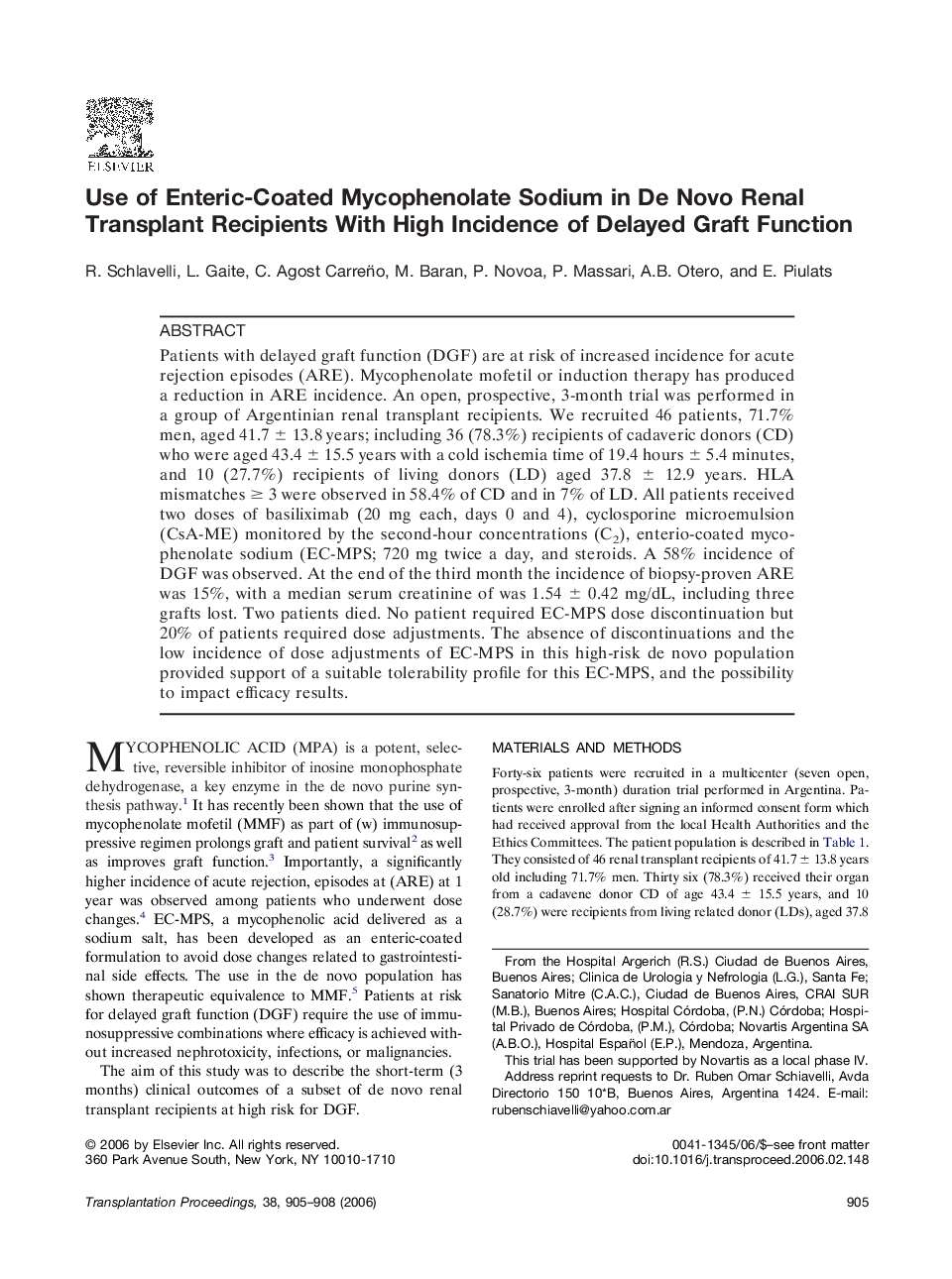| Article ID | Journal | Published Year | Pages | File Type |
|---|---|---|---|---|
| 4263046 | Transplantation Proceedings | 2006 | 4 Pages |
Patients with delayed graft function (DGF) are at risk of increased incidence for acute rejection episodes (ARE). Mycophenolate mofetil or induction therapy has produced a reduction in ARE incidence. An open, prospective, 3-month trial was performed in a group of Argentinian renal transplant recipients. We recruited 46 patients, 71.7% men, aged 41.7 ± 13.8 years; including 36 (78.3%) recipients of cadaveric donors (CD) who were aged 43.4 ± 15.5 years with a cold ischemia time of 19.4 hours ± 5.4 minutes, and 10 (27.7%) recipients of living donors (LD) aged 37.8 ± 12.9 years. HLA mismatches ≥ 3 were observed in 58.4% of CD and in 7% of LD. All patients received two doses of basiliximab (20 mg each, days 0 and 4), cyclosporine microemulsion (CsA-ME) monitored by the second-hour concentrations (C2), enterio-coated mycophenolate sodium (EC-MPS; 720 mg twice a day, and steroids. A 58% incidence of DGF was observed. At the end of the third month the incidence of biopsy-proven ARE was 15%, with a median serum creatinine of was 1.54 ± 0.42 mg/dL, including three grafts lost. Two patients died. No patient required EC-MPS dose discontinuation but 20% of patients required dose adjustments. The absence of discontinuations and the low incidence of dose adjustments of EC-MPS in this high-risk de novo population provided support of a suitable tolerability profile for this EC-MPS, and the possibility to impact efficacy results.
